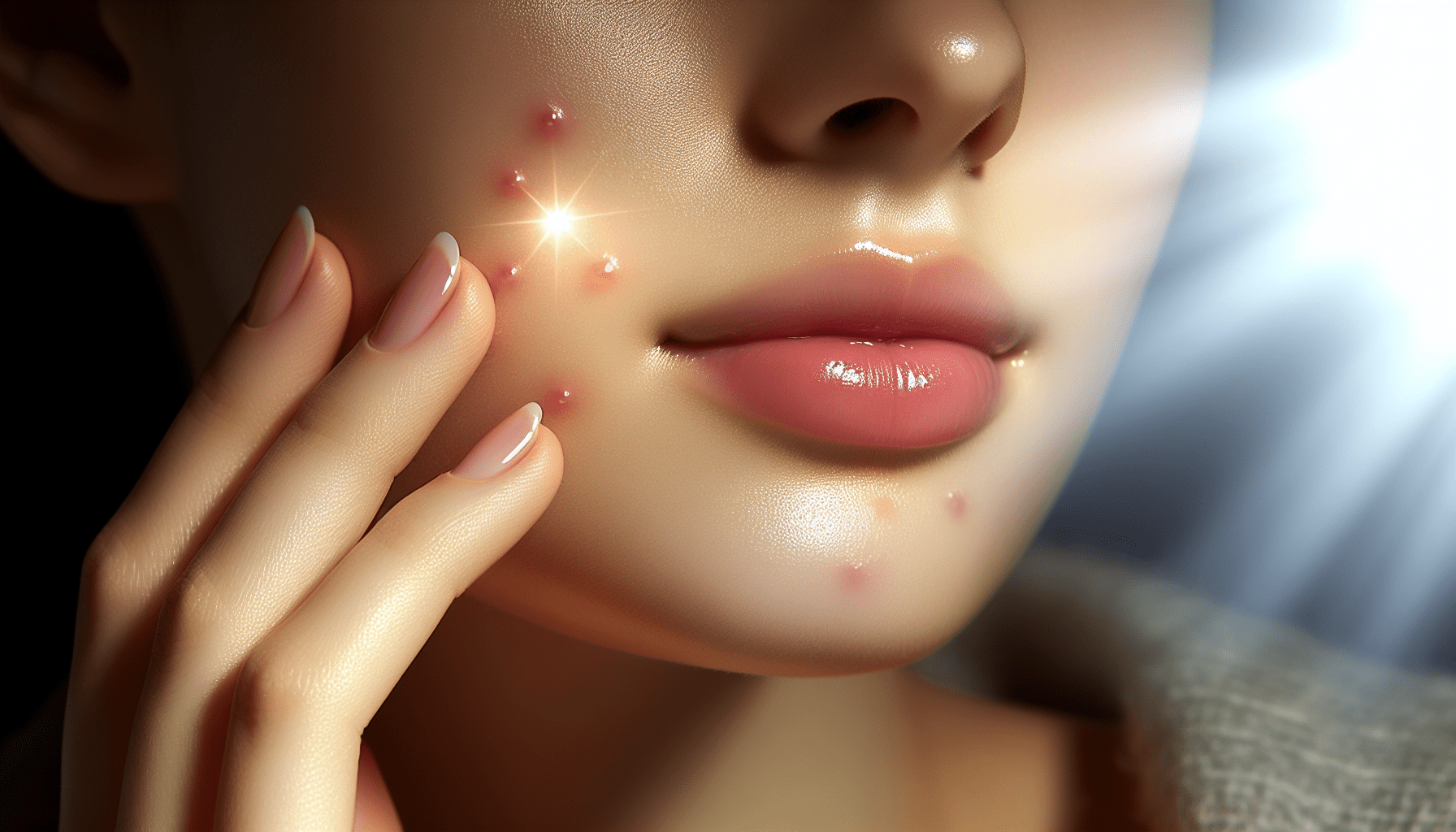If you’re looking to say goodbye to pesky acne fast, you’re in the right place. In this article, we will discuss some effective tips and strategies to help you achieve clear and radiant skin. By following a consistent skincare routine, maintaining a healthy diet, and avoiding trigger factors, you can minimize breakouts and reduce the appearance of acne quickly. Say hello to clear skin and goodbye to blemishes with these helpful tips!
How Can I Lose Acne Fast?
Are you tired of dealing with stubborn acne that just won’t seem to go away? Look no further, as this article will provide you with all the tips and tricks you need to get rid of acne fast. From skincare routines to lifestyle changes, we’ve got you covered. Say goodbye to acne and hello to clear, glowing skin!
Understanding Acne
Acne is a common skin condition that occurs when hair follicles become clogged with oil and dead skin cells. This can lead to various types of acne, including blackheads, whiteheads, pimples, and cysts. Understanding the root cause of acne is essential in developing an effective treatment plan.
Skincare Routine
Having a consistent skincare routine is crucial in the fight against acne. This should include gentle cleansing twice a day, using a non-comedogenic moisturizer, and applying acne-fighting products such as benzoyl peroxide or salicylic acid. Consistency is key when it comes to skincare, so make sure to stick to your routine daily for best results.
Morning Routine
Start your day by cleansing your face with a gentle cleanser to remove any oil and impurities that may have built up overnight. Follow up with a non-comedogenic moisturizer to hydrate your skin without clogging your pores. Finally, apply a sunscreen with at least SPF 30 to protect your skin from harmful UV rays.
Evening Routine
In the evening, repeat the cleansing and moisturizing steps from your morning routine. If you wear makeup, make sure to remove it thoroughly before cleansing your face. Consider incorporating a treatment product with acne-fighting ingredients, such as benzoyl peroxide or retinoids, into your nighttime routine to target acne effectively.
Diet and Lifestyle Changes
Making changes to your diet and lifestyle can also have a significant impact on your skin’s health and acne breakouts. Avoiding foods high in sugar and processed carbohydrates can help reduce inflammation in the body, which may lead to clearer skin. Additionally, staying hydrated, getting enough sleep, and managing stress levels can all contribute to healthier skin.
Foods to Avoid
Some studies suggest that high-glycemic foods, such as white bread, sugary drinks, and pastries, can trigger acne breakouts. Consider incorporating more fruits, vegetables, whole grains, and lean proteins into your diet to promote skin health and reduce inflammation. Keeping a food diary can help you identify any potential acne triggers in your diet.
Hydration
Drinking an adequate amount of water every day is essential for maintaining healthy skin. Hydration helps your skin stay hydrated and plump, reducing the appearance of fine lines and wrinkles. Aim to drink at least eight glasses of water daily to support your skin’s natural functions and improve overall skin health.
Sleep and Stress Management
Lack of sleep and high levels of stress can exacerbate acne breakouts. Make sure to prioritize getting seven to nine hours of quality sleep each night to allow your skin to regenerate and repair itself. Practicing stress-reducing activities such as yoga, meditation, or deep breathing exercises can also help improve your skin’s condition and overall well-being.
Professional Treatments
In some cases, over-the-counter products and lifestyle changes may not be enough to combat stubborn acne. Seeking professional treatments from a dermatologist or skincare specialist can provide you with additional options to target your acne effectively. These treatments may include prescription medications, chemical peels, laser therapy, or extractions.
Prescription Medications
Dermatologists may prescribe topical medications such as retinoids, antibiotics, or combination therapies to treat acne more aggressively. Oral medications like isotretinoin (Accutane) may be recommended for severe cases of acne that do not respond to other treatments. It is essential to follow your dermatologist’s instructions carefully when using prescription medications to avoid any adverse effects.
Chemical Peels
Chemical peels use a chemical solution to exfoliate and remove dead skin cells, unclog pores, and stimulate skin cell turnover. These treatments can help improve the appearance of acne-prone skin, reduce acne scars, and promote overall skin rejuvenation. Your dermatologist can recommend the appropriate type and strength of chemical peel based on your skin type and acne severity.
Laser Therapy
Laser therapy treatments target acne-causing bacteria, reduce inflammation, and stimulate collagen production to improve skin texture and tone. These treatments can be effective in treating active acne breakouts, as well as reducing acne scars and hyperpigmentation. Multiple sessions may be required to achieve desired results, so consult with your dermatologist to determine the best treatment plan for your skin.
Conclusion
Dealing with acne can be frustrating, but with the right skincare routine, diet and lifestyle changes, and professional treatments, you can effectively combat acne and achieve clear, glowing skin. Remember to be patient and consistent with your skincare efforts, as results may take time to become visible. Consult with a dermatologist if you are struggling to manage your acne, as they can provide personalized recommendations and treatments to help you achieve your skincare goals. Say goodbye to acne and hello to beautiful, healthy skin!
